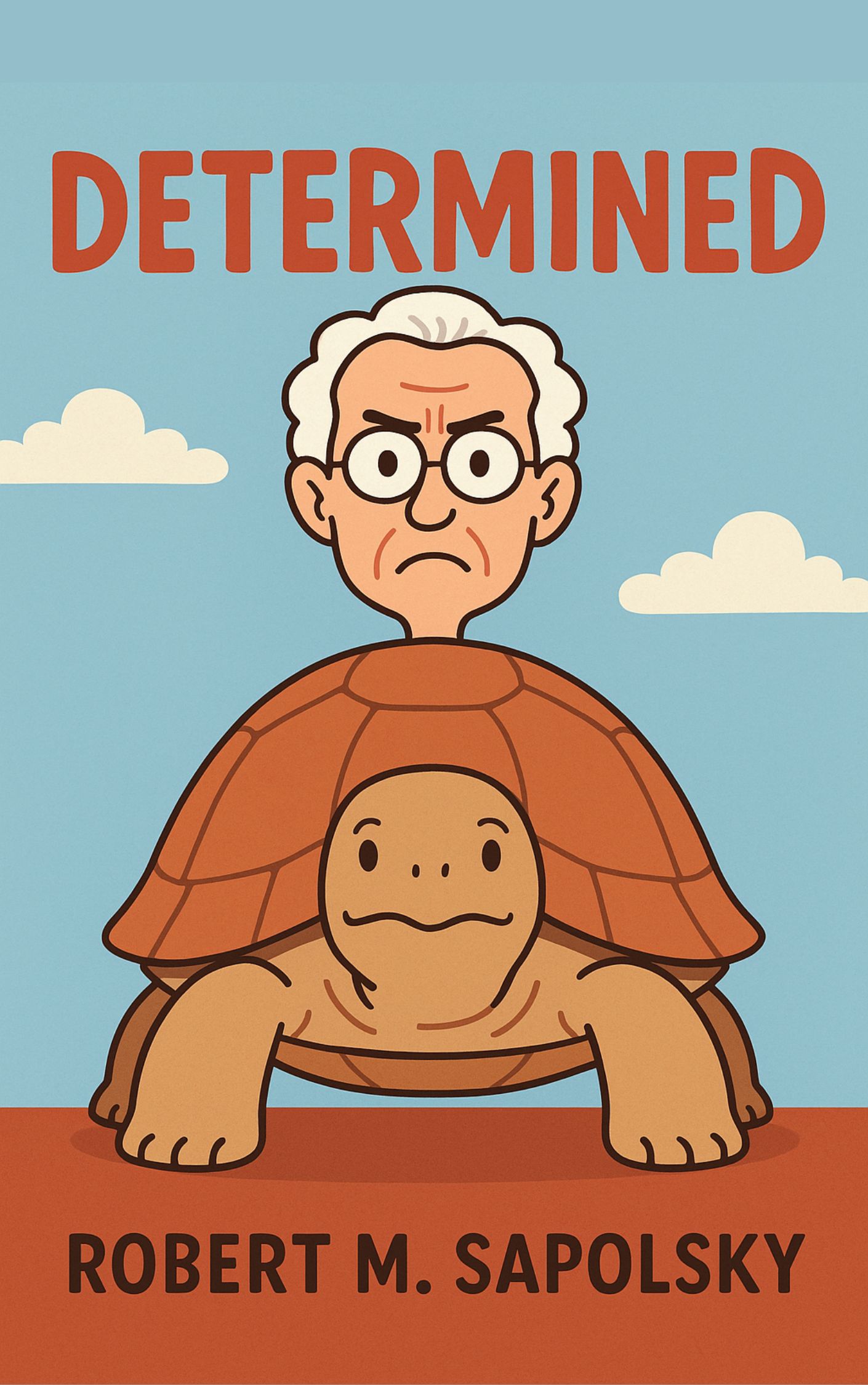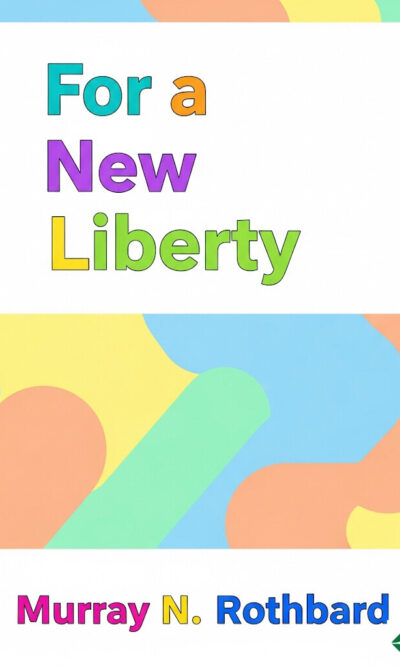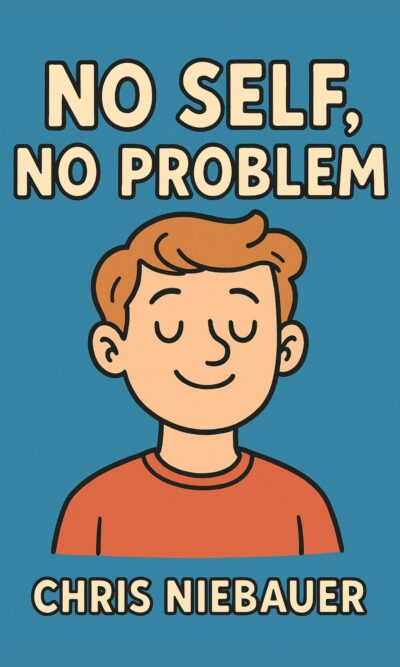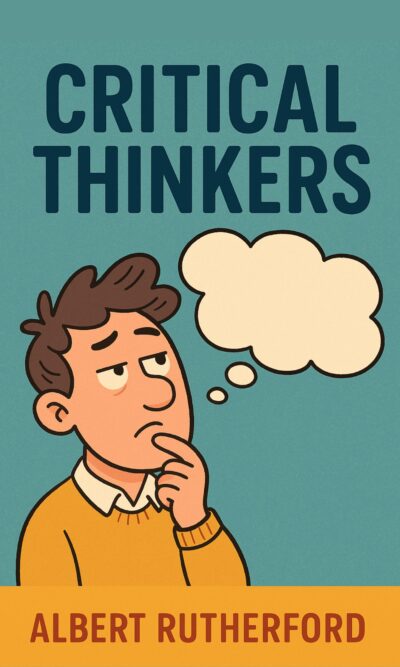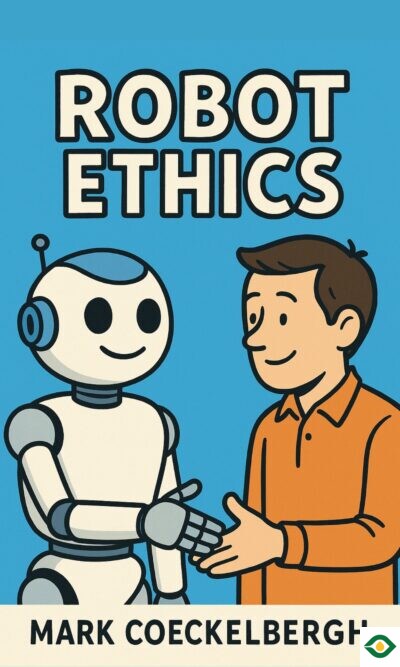Description
Most of us grow up believing we control our actions. We think we freely decide what to do, whether it’s choosing a career, falling in love, or picking what to eat for dinner. But what if this sense of control is an illusion? What if every action and every thought we have is the result of forces outside our control? That is the radical idea explored in Robert Sapolsky’s book Determined.
The core argument is simple yet unsettling: free will does not truly exist. Every choice we think we make is already shaped by our biology, our childhood, our culture, and countless other influences that stretch back long before we were born. To believe in free will is like believing in a single turtle floating in the air, holding up the world. Once you start looking closely, you see it’s turtles all the way down — layers upon layers of causes that shape us endlessly.
Take a simple example. Imagine someone eating the last doughnut. It feels like a choice, but if you trace the chain of events, it becomes clear it wasn’t free at all. Their brain was already preparing for that action seconds before they consciously thought about it. That brain activity was influenced by hunger signals, hormone levels, and habits formed over a lifetime. Those habits were shaped by childhood experiences, which were shaped by their parents, who were shaped by their own genes and environments. The web of causes never stops.
Experiments in neuroscience support this idea. In the 1980s, Benjamin Libet discovered something striking: when people decide to press a button, their brains show signs of making that decision a fraction of a second before they themselves become aware of deciding. In other words, the brain “chooses,” and only afterward does the conscious mind feel like it made the choice. We may not have “free will,” but perhaps we have a small power of “free won’t.” For a brief moment, we can stop an action before it happens. Yet even that veto power is shaped by earlier causes.
When we zoom out, every decision looks less like a moment of free choice and more like the product of years of conditioning. Imagine a police officer who has only seconds to decide whether a suspect is holding a gun or a phone. That choice seems like free will, but it is influenced by decades of experiences, biases, stress levels, hormones, and even whether the officer recently ate. Hunger, fear, past trauma, and cultural stereotypes all play roles.
Our brains are constantly rewired by experiences. Childhood, especially, leaves deep marks. The way parents raised us, the neighborhoods we lived in, and even the climate of our hometown can shape how we think and act decades later. A teenager’s brain development strongly influences how that person will make decisions as an adult. Even before birth, the mother’s stress, nutrition, and health can influence how a child’s brain forms. Genes, too, play a part, but they do not act alone. They interact with the environment, creating unique outcomes.
For instance, some genetic variations can increase the chance of aggressive behavior, but only when combined with childhood abuse. Without the abuse, the same genes may not cause problems. Culture also shapes perception. People from different backgrounds may find different facial expressions more rewarding, influencing how they connect with others. In this sense, every split-second decision is actually the end result of decades — even generations — of influences.
So if our actions are determined, what does that mean for morality and justice? Our society is built on the idea that people are responsible for their choices. We punish crime on the assumption that individuals could have acted differently. But if they could not have, is punishment fair?
History offers examples of how mistaken beliefs about free will can cause cruelty. In the Middle Ages, seizures were blamed on witchcraft. Women were executed because people thought someone had to be responsible. Today we know seizures come from brain activity, not free will or evil. We would never punish someone for having epilepsy.
Now consider a driver who suffers a seizure and kills a pedestrian. If the seizure was unpredictable, we call it a tragic accident. But if the driver had skipped medication, we tend to blame them. Yet even that “choice” was shaped by brain chemistry, habits, and other factors outside conscious control. Is it fair to hold them fully responsible?
This doesn’t mean society should ignore dangerous behavior. We don’t let bears roam city streets even though they have no free will. Instead, we keep them away for safety. In the same way, we can protect people from harmful actions without pretending that punishment is about moral blame. Systems like restorative justice aim to reduce harm while recognizing that people did not freely choose to be who they are.
Accepting the absence of free will might actually make us kinder. Over time, we have stopped blaming people for things they cannot control. Left-handedness was once seen as evil; now it is normal. Dyslexia was once dismissed as laziness; now it is understood as a learning difference. Veterans with PTSD were once seen as weak; now their suffering is recognized as real. The more we understand how biology and environment shape behavior, the less we judge harshly.
Of course, the idea that free will doesn’t exist is uncomfortable. It seems to challenge the foundations of responsibility, motivation, and meaning. But it also opens the door to compassion. Instead of asking, “Why did you choose to do this?” we can ask, “What caused this, and how can we change those causes?”
In the end, the message of Determined is not that life is hopeless, but that life is deeply interconnected. Our actions come from a web of influences stretching across time, from genes to culture, from childhood to the present. When we see this clearly, we understand people not as isolated decision-makers but as the products of countless forces. And with that understanding, we can build a society that is less focused on blame and more focused on fairness, safety, and care.

